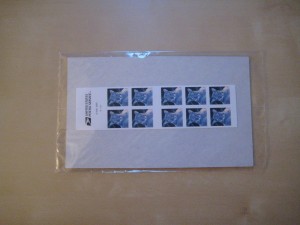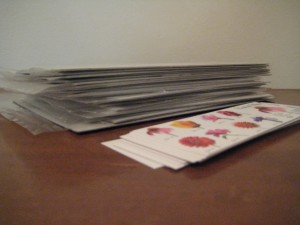Things that make me feel old:
(1) Area codes with a non-1-or-zero center digit. When I was growing up, all area codes had either a 1 or a 0 in the middle. I asked my dad about it once and he said it was a technical limitation of the telephone switching system from way back.
(2) After accidentally deleting the Busta Rhymes episode of Space Ghost Coast to Coast from TiVo about three years ago, not realizing until yesterday that we could just look it up on YouTube.
(3) The thing I’m happiest about finding on YouTube so far is a 1914 recording of a song written in 1820 from a poem written by a guy who was born in 1774.
(4) Realizing (while doing a crossword puzzle) that I remember when “undo” was a fancy new computer function.
(5) Having a panic attack because I only have 3.8 GB of space left on the file server, and then realizing that probably sometime in my lifetime, 4 GB was more storage than there was on all the computers in the whole world. (Maybe. Have been unable to find a chronology to confirm.)
Addendum: I was talking to Colin about this the other day, and we figured this: Back in the day (the October 1970-type day, when I was born), a really whiz-bang corporate computer had maybe 1 kilobyte of storage. Yes, kiddies, that’s 1KB. Most of the data at that time was on tape or cards, so the computers themselves were not big on the byte capacity. For there to have been 3.8GB available on the planet, there would have had to be 38,000 1KB computers in 1970 (or, alternatively, 3,800 1MB computers), which we are pretty sure there were not. But if anyone can tell us otherwise, we’d be delighted to hear about it.
And P.S. I got my shiny new file server and now I have 418GB of available space, and I sleep much better, so ha!


